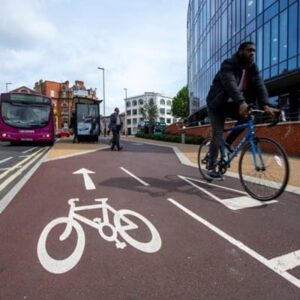Ireland is increase its bus services in rural areas to help solve the challenge of only two out of five villages have no public transport connection to their nearest town.
Under the new plans, the number of services will increase by 25%’ and times will be rescheduled to suit both commuting and social trips.
The ‘Connecting Ireland’ project will increase the number of people in rural areas who will have access to at least three return trips daily to the nearest town from 53% to 70%..
More than 100 villages will get three-times a day return service for the first time, and there will also be more than 60 new connections to regional cities from surrounding areas.
Pick-up and drop-off points will also be reorganised with more than 100 new local centre connections established along with 100 new county town connections and 60 new regional centre or city connections, reports the Independent in Ireland.
Morning timetables are to be rejigged to meet the demand for people to get to key destinations such as work and education facilities by 9am, and routes are to be redirected to serve other essential services such as hospitals.
Sparsely populated areas will get an expanded demand responsive transport (DRT) network – a door to serve that is booked in advance to provide extra options for people living in very remote locations.
Minister for Transport Eamon Ryan said the plans would give people better services and help tackle emissions from transport as a climate action measure.
“To have strong local economies and to give people real options for getting around you need good public transport links – this plan represents a step-change in delivering good quality public transport in rural Ireland,” he said.
The plan was drawn up after consultation with local authorities who provided the local knowledge to fill in the gaps in national transport planning.
Anne Graham, chief executive of the National Transport Authority, said the plan would not be completely finished until the public had their say. A consultation period began this week and the detailed planning will begin early next year.
“We know that for many people, living in a village or in a rural area can mean that accessing services, or employment, or education, or even retail is difficult if not impossible, without using a private car. We want to change that,” Ms Graham said.
“I believe that expanding the public transport network and increasing service levels, in the way we are proposing, will mean that more people in rural areas will have greater levels of freedom whether or not they have a car.
“But it’s not about what I believe. What’s more important now is for us to get the views of members of the public – particularly those in rural areas – about Connecting Ireland.”
























